Essentially every humanity-related issue I care about will be significantly influenced by the outcome of the 2024 U.S. election, from American democracy to the clean energy transition to even the efforts to save millions of lives by funding public health interventions in sub-Saharan Africa. While I don’t agree with them on every issue, I consider the policies and leadership of the current Democratic Party to be overwhelmingly superior, across the board, to any plausible alternative currently on the U.S. political scene.
I’ve recently donated $2,024, a nontrivial portion of my current net worth, to a selection of Democratic Party candidates in 2024. I’m writing about it to encourage others1 to make their own contributions, if they can. Here’s where my donations went, and why.
Win the Presidency
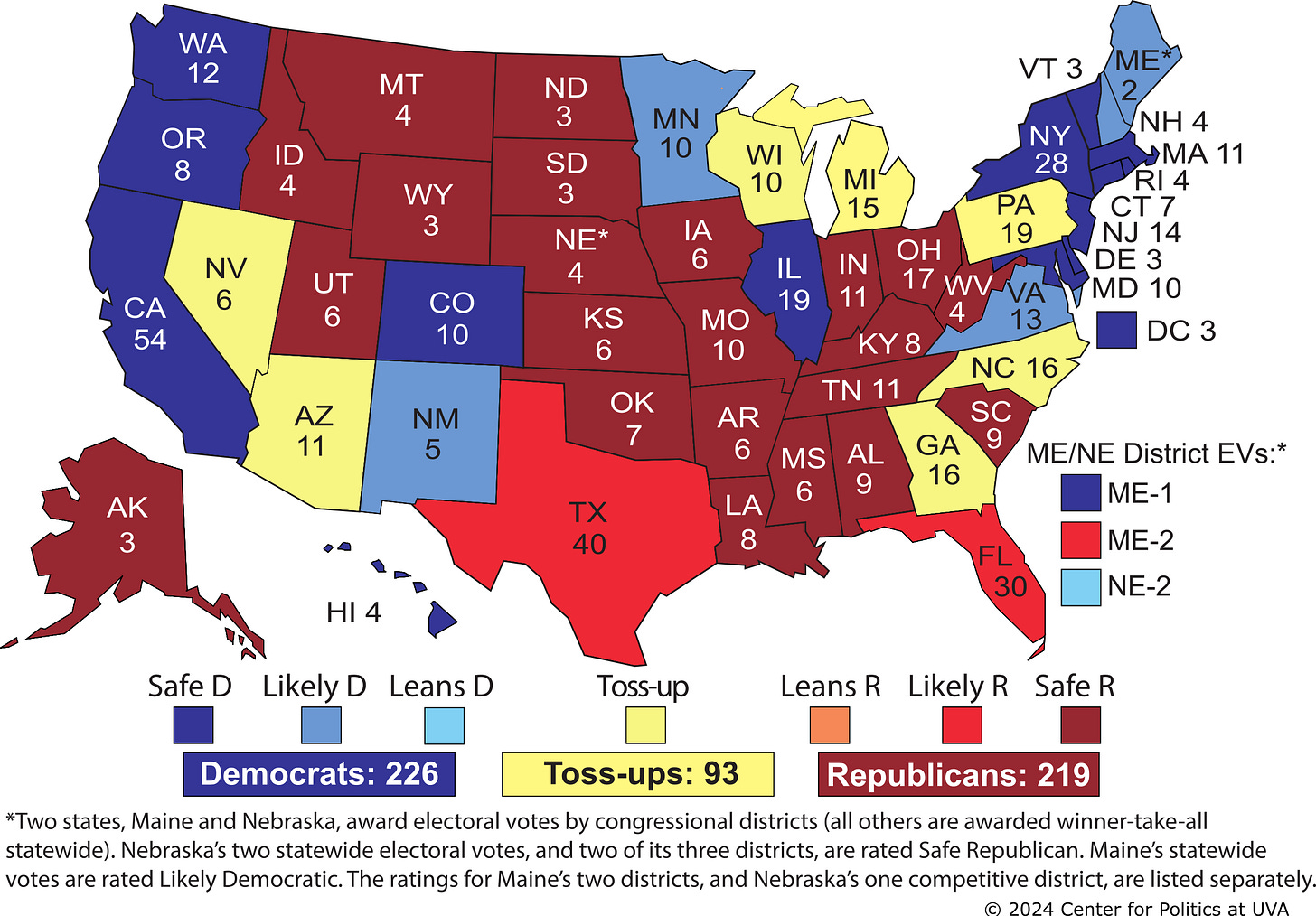
The 2024 U.S. presidential election is incredibly close. Due to the electoral college system, it will almost certainly be decided by voters in Arizona, Michigan, Nevada, North Carolina, Pennsylvania, and Wisconsin. If you live in one of these critical seven “toss-up” states, your vote this year is extraordinarily, historically important. From there, or anywhere in the U.S., you can check your voter registration, see what will be on your ballot, register to vote, and get election reminders through Vote.org.
And here’s an in-depth series of articles explaining the probable consequences if the Democrats lose to their opponent, in arenas from civil rights to foreign policy.
Thus, my first donation is:
Kamala Harris for President of the United States - $1,000


You, the reader, have likely already formed a detailed opinion about Kamala Harris. But there’s one more story that really deserves some more attention, and that particularly helped inspire me to give that $1,0002.
In 2021, Vice President Kamala Harris was a major force behind the passage of the landmark Bipartisan Infrastructure Law, which funded a mass cleanup of toxic lead pipes, electrification infrastructure, drought relief, and much more. She led over 150 calls and meetings with lawmakers to get the BIL passed. And she was personally key to including one amazing new program that she’d been working on for a while.
In 2019, Senator Kamala Harris had introduced the Clean School Bus Act, calling for federal grants to replace school buses with cleaner electric school buses. It didn’t pass then, but as Vice President, that act’s provisions were successfully included in the BIL establishing the $5 billion EPA Clean School Bus Program. Since then, the EPA has awarded $3 billion from that program to fund approximately 8,500 clean school buses at 1,000 U.S. schools.
In two years, Kamala Harris successfully moved electric school buses from a words-on-a-page policy proposal to a wheels-on-the-ground transformative nationwide investment, helping a generation of American kids breathe easier as they ride to school on non-polluting transportation. If you needed another reason to vote for her, there it is. More American voters should know about this story.
Flip the House of Representatives - $700
The House of Representatives race is incredibly close right now. As of September 5, the House has 220 Republicans, 211 Democrats, and 4 vacant seats, with 218 seats the threshold for a majority.
Winning just a single-digit number of Republican-held seats could flip the chamber to Democratic control, dramatically increasing the potential for positive legislation in the event of a Harris victory or dramatically reducing the potential for harmful legislation in the event of a Harris loss.
Here’s the nonpartisan Cook Political Report summary on competitive House races.
I eventually decided to give $100 each to 7 House candidates, two incumbents running to hold their seats, one running to replace a retiring Democrat, and four running to replace incumbent Republicans. I chose to give to House races in states that are also highly competitive at the presidential level (Michigan, Wisconsin, Pennsylvania, Arizona), or the Senate level (Sherrod Brown’s race in Ohio) to maximize my impact.
For my House and Senate donations, click on the candidate photos to go to their websites.
Rep. Susan Wild for Pennsylvania-07 - $100
Congresswoman Susan Wild is a strong Democratic incumbent in a very close district in what might be the tipping-point state for the entire election. Cook ranks this seat as “Toss Up.”
Rep. Emilia Sykes for Ohio-13 - $100
Congresswoman Emilia Sykes is running for re-election in a close district. She’s known for her leadership on environmental and cleantech manufacturing issues. Cook ranks this seat as “Toss Up.”
Kristen McDonald Rivet for Michigan-08 - $100
Ms. Kristen McDonald Rivet is running to hold a close Democratic seat as Rep. Dan Kildee is retiring. Cook ranks this seat as “Toss Up.”
Rebecca Cooke for Wisconsin-03 - $100
Ms. Rebecca Cooke has a chance at replacing a particularly extremist Republican. Cook ranks this seat as “Lean Republican,” but it’s still competitive.
Amish Shah for Arizona-01 - $100
Dr. Amish Shah is running to replace an incumbent Republican. Cook ranks this seat as “Toss Up.”
Kirsten Engel for Arizona-06 - $100
Ms. Kirsten Engel is a climate champion taking on a close Republican-held seat. Cook ranks this seat as “Toss Up.”
Janelle Stelson for Pennsylvania-10 - $100
Ms. Janelle Stelson is taking on Republican Rep. Scott Perry, one of the absolute worst. Cook ranks this seat as “Lean Republican,” but it’s still competitive.
Hold the Senate - $300
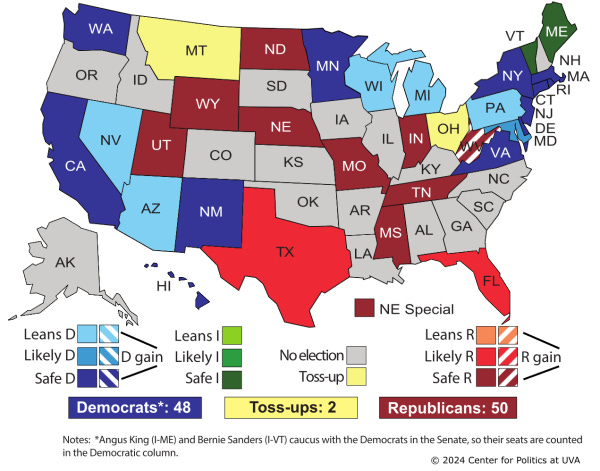
The Democrats currently hold a 51-49 majority in the Senate, but are widely viewed as facing a historically difficult Senate election map this year, with Senator Manchin’s impending retirement essentially ensuring a loss of at least one seat and several other Democratic Senators representating Republican-leaning states up for re-election. Every race matters very much here; even if holding the majority this year will be difficult, each seat saved makes it easier to win a new Senate majority in 2026.
Sen. Jon Tester for Montana - $100
Senator Jon Tester is probably the most at-risk Senate Democrat, running for re-election in a very close race in a Republican-leaning state. Without Senator Tester’s vote, we wouldn’t have the Inflation Reduction Act today - let’s keep him in the Senate if we can!
Sen. Sherrod Brown for Ohio - $50
Senator Sherrod Brown is likely the second-most at-risk Senate Democrat, likewise running for re-election in a close race in a Republican-leaning state.
Elissa Slotkin for Michigan - $50
Congresswoman Elissa Slotkin, an emerging leader among the “National Security Democrats” friend group, is running to become Michigan’s next Senator.
Dan Osborn for Nebraska- $50
This one is by far the most risky, “out-there” and unlikely of my political donation choices, as Nebraska is widely considered a safely Republican state.
However, a series of recent polls have shown Dan Osborn in a shockingly close race against the incumbent Republican Senator (perhaps in part because he’s running as an independent with a strong personal brand and no Democrat in the race) and this might just be a chance to shake up the Senate math. High-risk, high-reward.
Ruben Gallego for Arizona - $25
Tammy Baldwin for Wisconsin- $25
I then donated $25 each to incumbent U.S. Senator Tammy Baldwin of Wisconsin and candidate Ruben Gallego of Arizona. Both are widely popular and are broadly expected to win their races even their states remain a “toss-up” at the presidential level, so boosting their campaigns might have a “trickle-up” voter engagement effect.
My Home State of Maine.
That left me with $24 to make up the symbolic $2,024 in donations for the 2024 elections. I decided to give $6 each to four legislative races that directly represent me in my home state of Maine. All four are “safe seats” where my preferred candidate is highly likely to win in November, but I appreciate the work these folks are doing and I figured I’d be happy to just buy one of their campaigners a breakfast at Dunkin’ Donuts or something.
U.S. Senator Angus King for Maine - $6
U.S. Representative Chellie Pingree for Maine - $6
I then found that the Democratic candidates for my State Senator and State Representative races opted for a Maine Clean Elections financing model which capped donations at $5 each.
My State Senator - $5
My State Representative Candidate - $5
That left me with an extra $2 to make up the symbolic $2,024, so I donated that last little bit to Harris as well.
Kamala Harris (again) - $2
So that’s how and why I donated $2,024 to the Democrats in 2024!
I hope that this encourages some of my U.S. readers to vote for and donate to the Democrats as well. Forgive the overtly political digression from usual topics; this election is rather on my mind at the moment.
Foreign nationals generally cannot contribute to U.S. election campaigns, so my apologies if this article seems irrelevant to my many international readers!
Also, when making this donation, I used the YIMBYs for Harris donor link (https://secure.actblue.com/donate/yimbysforharris), which basically just puts a metaphorical sticker on your donation saying “this person who donated to Harris agrees with the YIMBYs (Yes In My BackYard) for Harris group.” For a wide range of reasons, I think housing abundance is a key issue for climate action and socioeconomic wellbeing, and Vice President Harris is prioritizing housing to an unprecedented extent in her campaign so far. This seemed like a good opportunity to demonstrate that the issue helps raise funds for the Harris campaign, and thus contribute to slightly increasing the influence of the YIMBY movement within the Democratic Party.






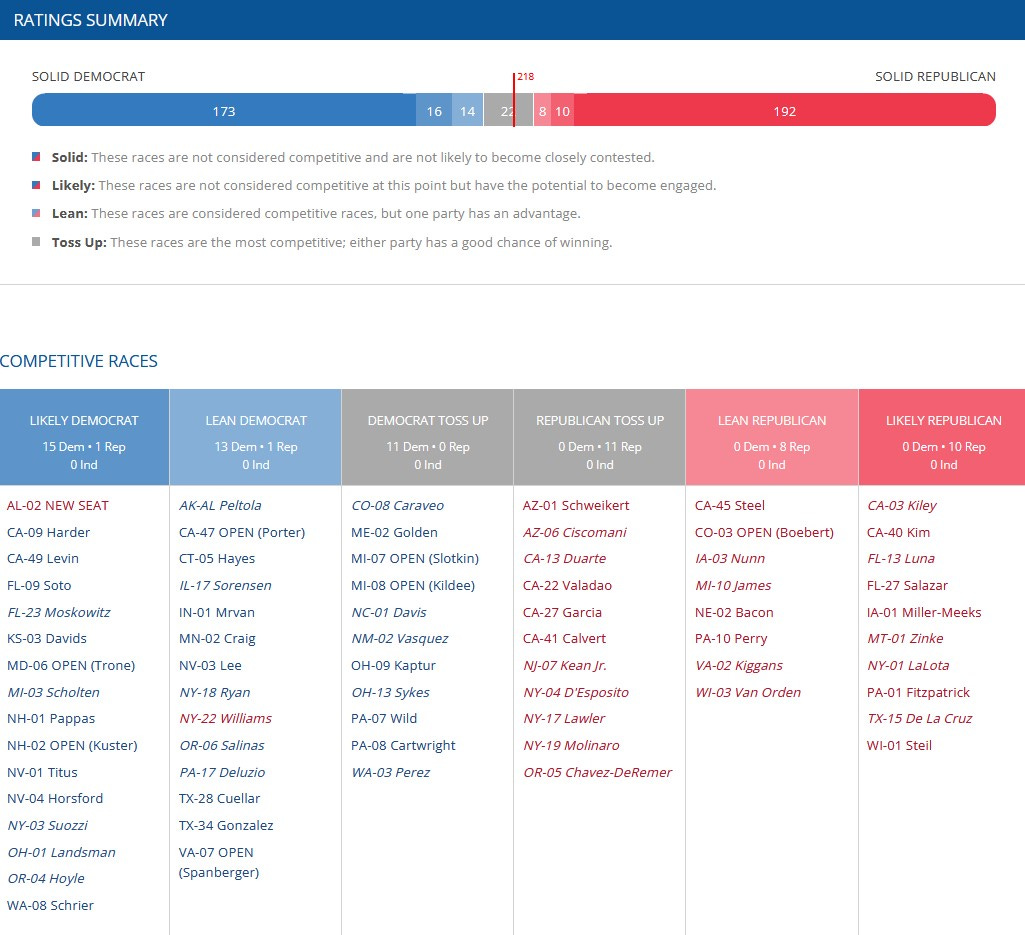
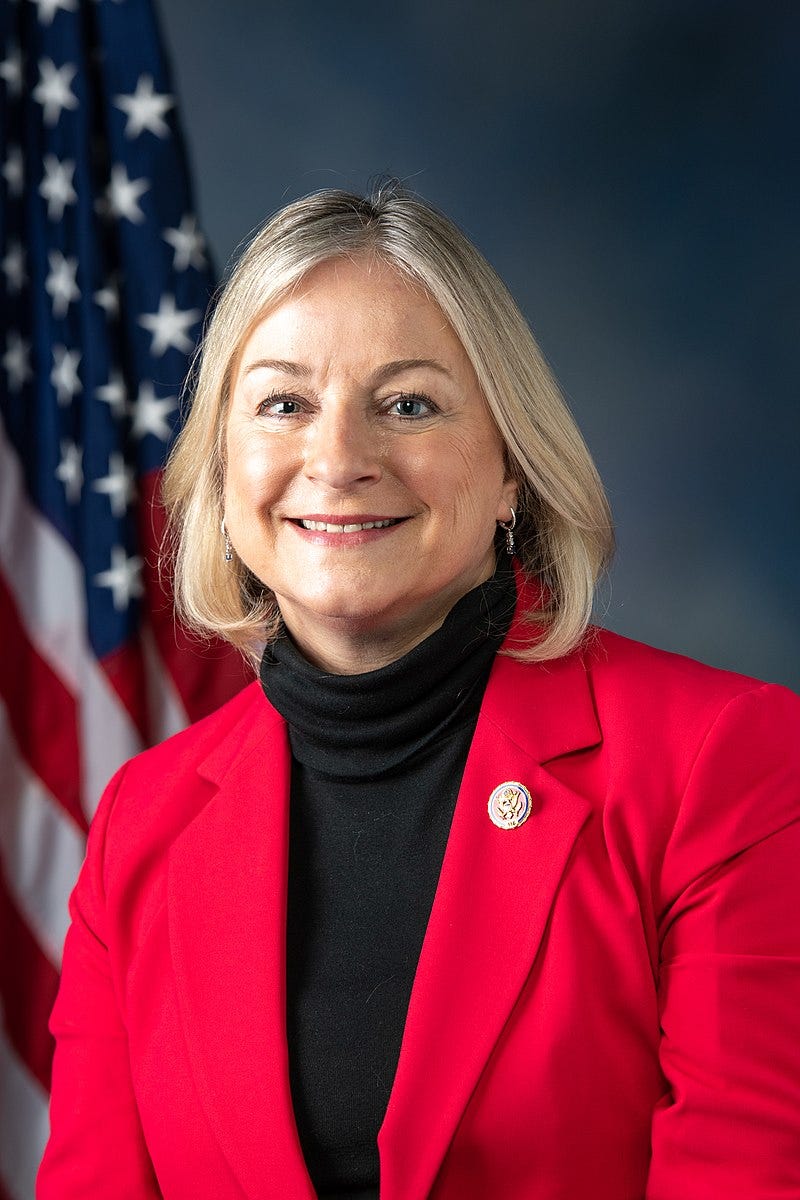

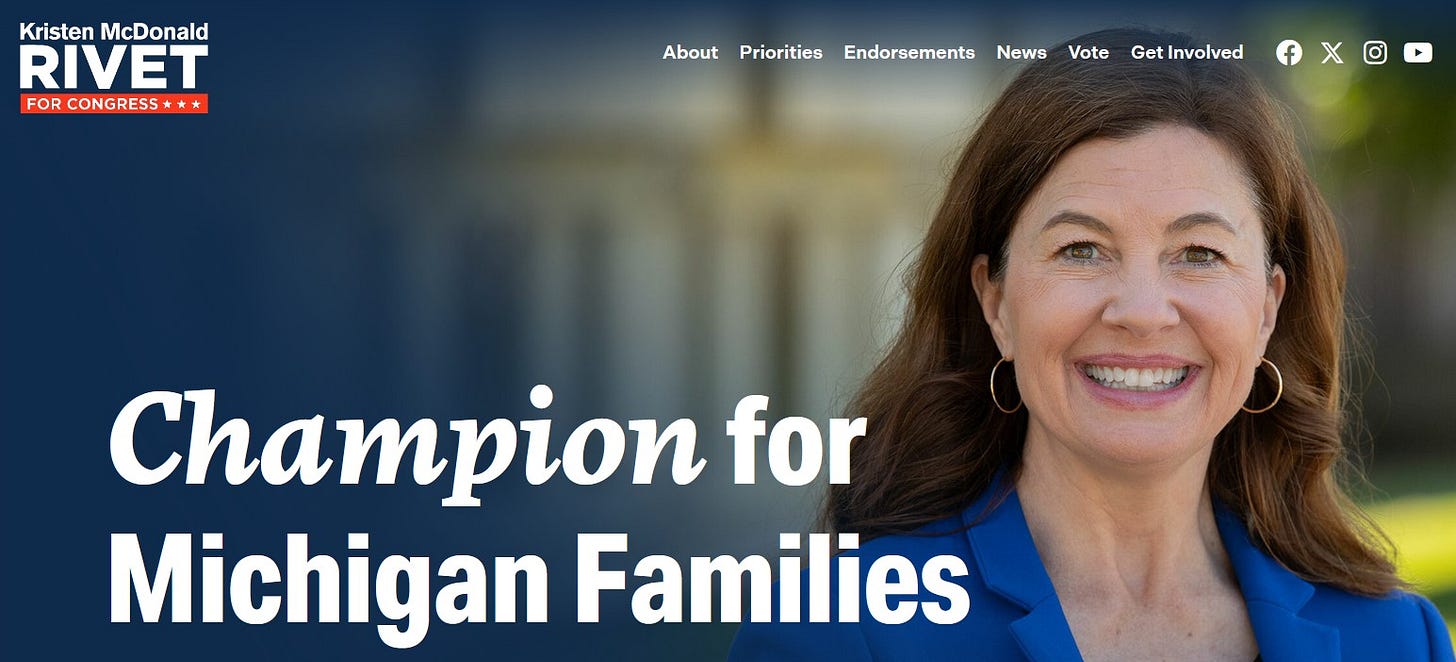

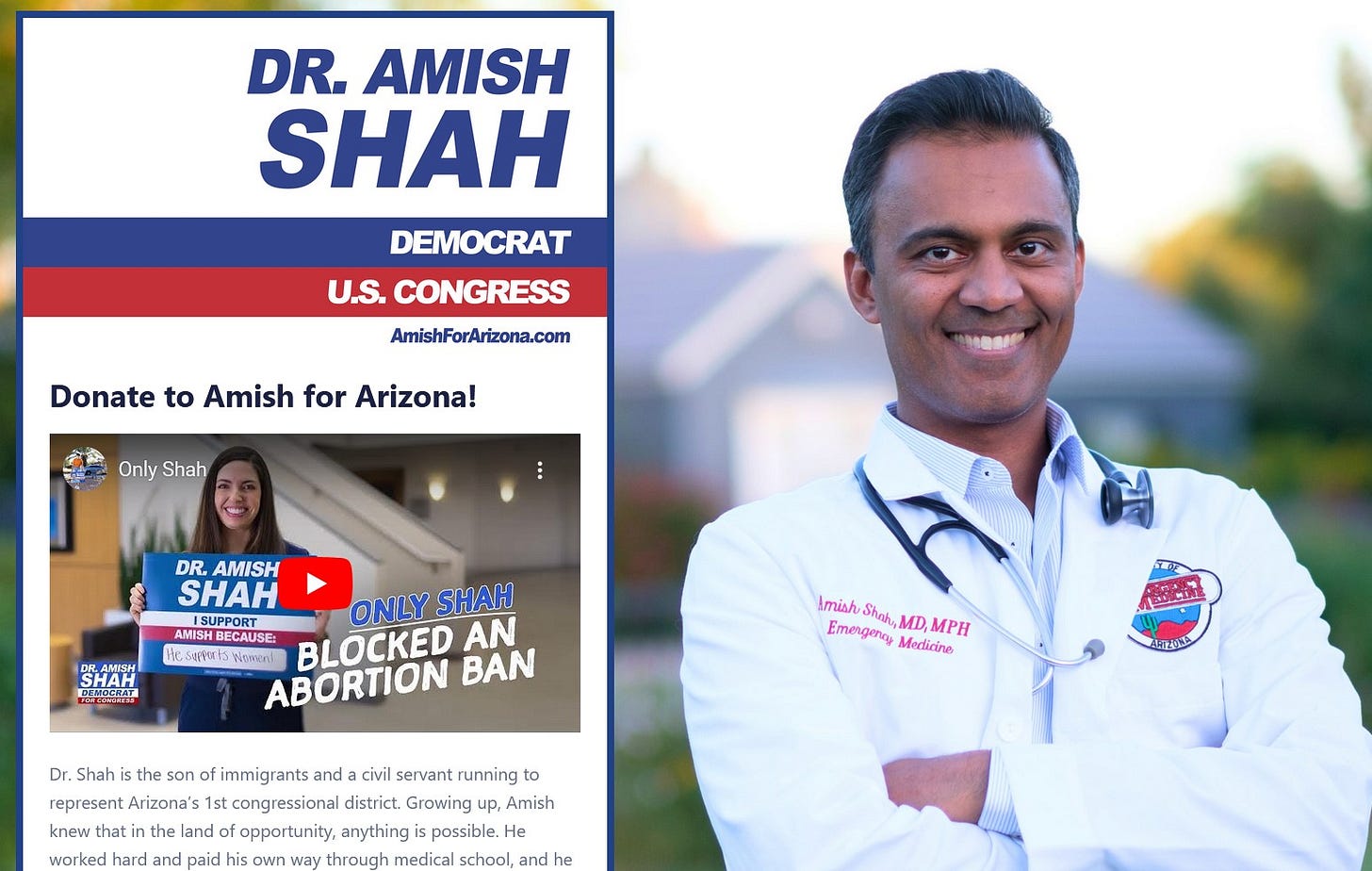
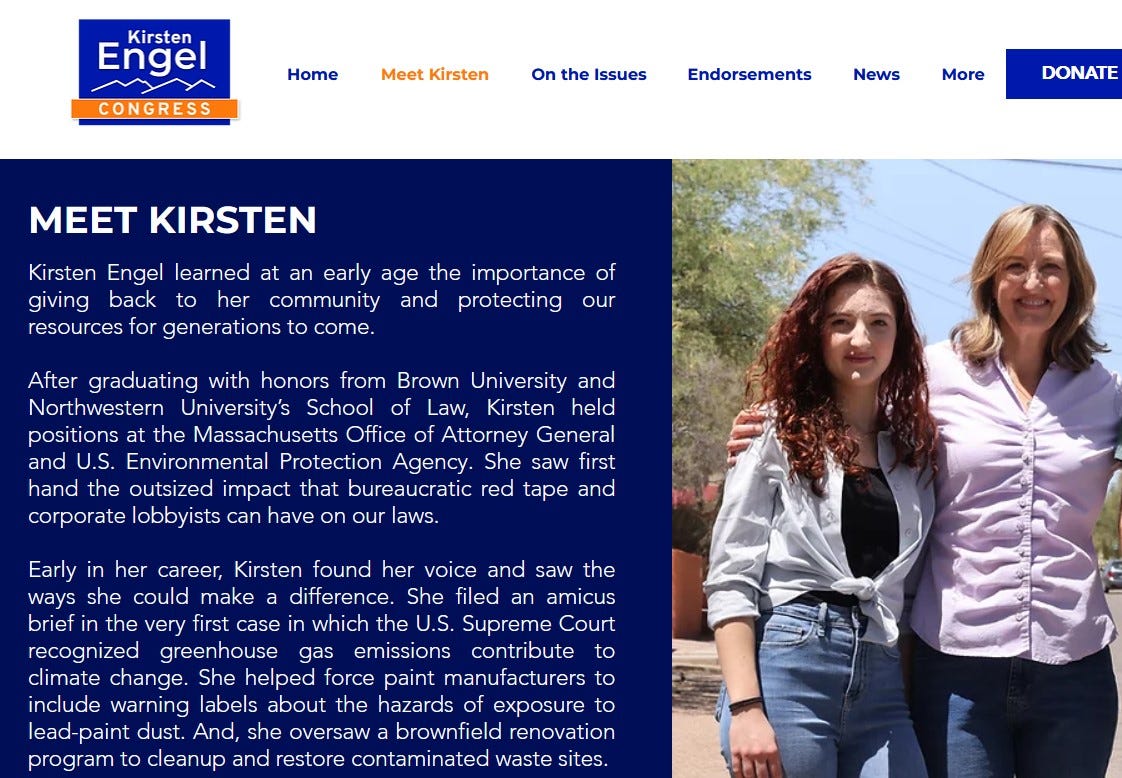
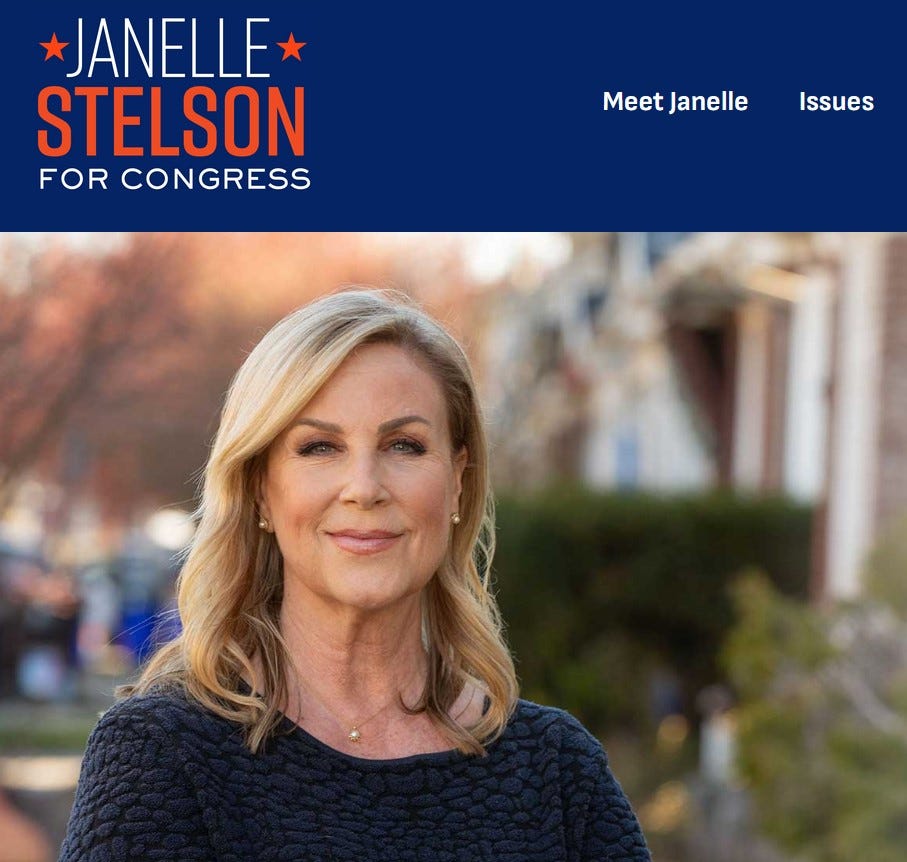

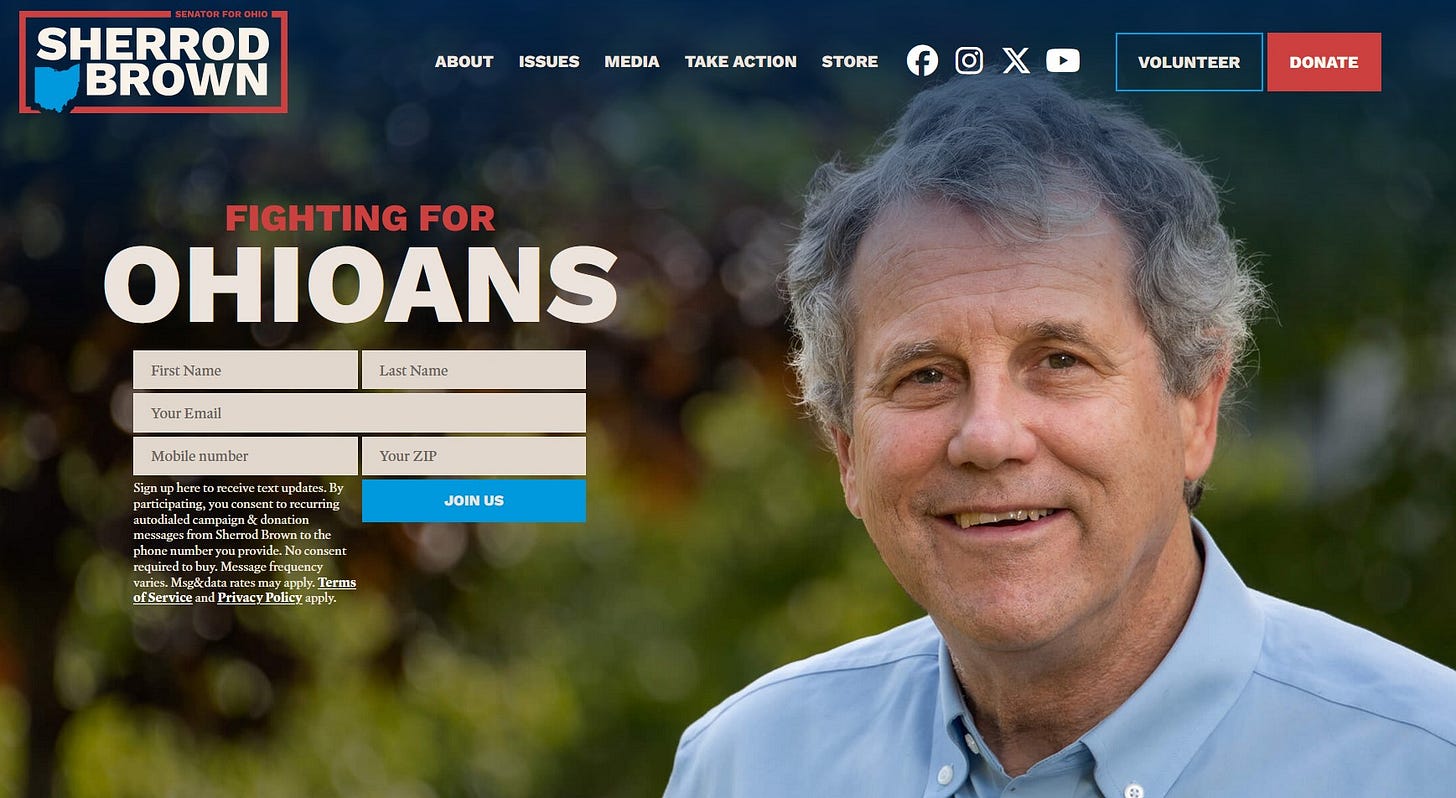


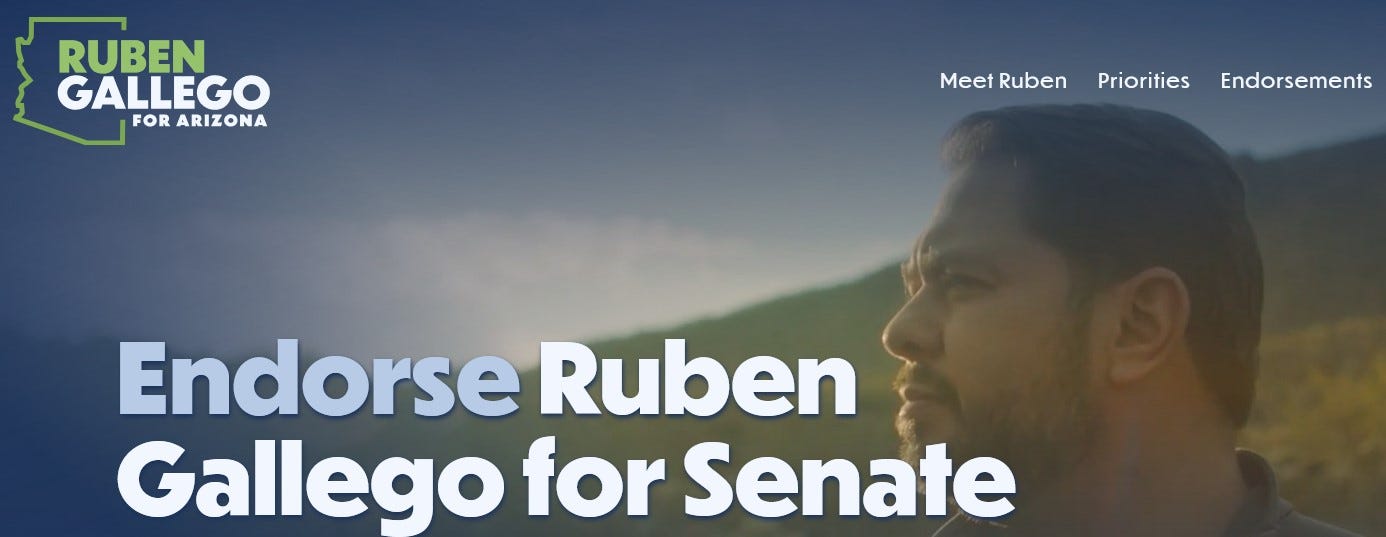

Thanks for donating to two of my elected officials here in Michigan. Both Slotkin and Rivet flipped the first seats they ran for - Slotkin for the US Congress seat in mid-Michigan formerly held by Mike Rogers and Rivet for a long-time Republican state senate seat in Saginaw, Bay, and Midland counties. They’re great candidates.
Good for you, Sam. Good intelligent decisions. I hate voter partisanship generally, but voter apathy is even worse. Our whole voting system is fatally flawed with the Electoral College and the Senate being exhibits A and B. How else could a numerically smaller party have managed to retain parity over the decades?